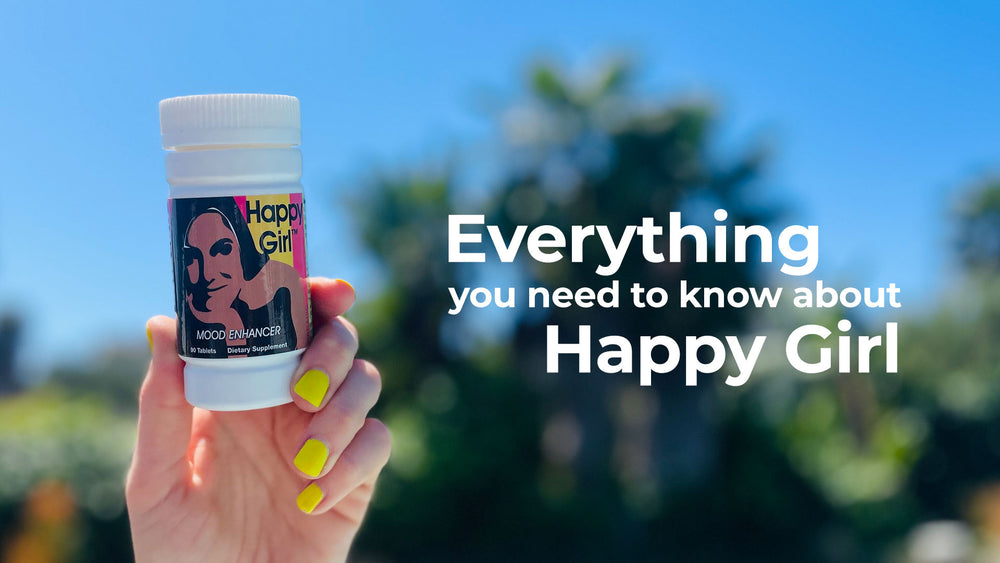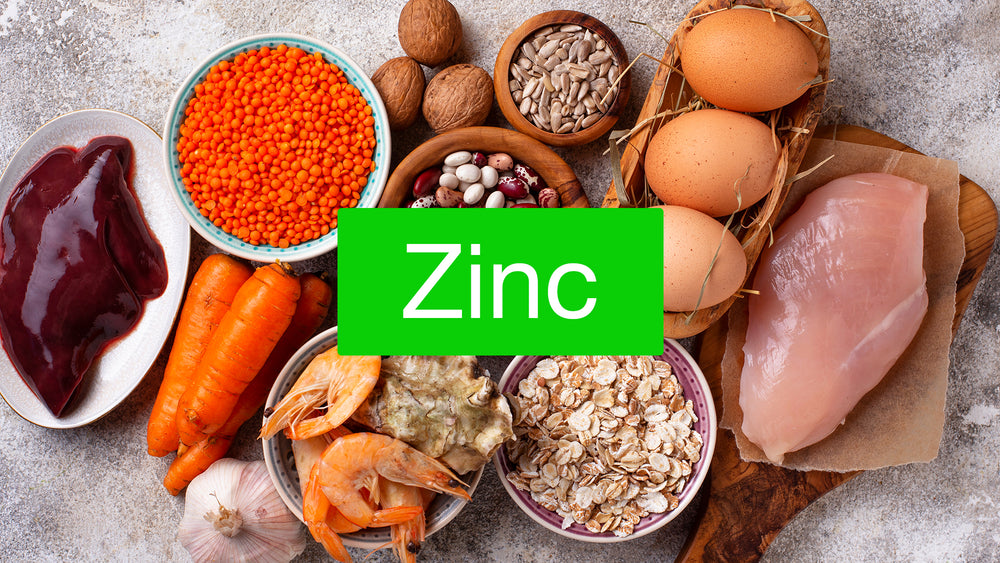You don't have to suffer in silence when you're feeling anxious or depressed. People who experience occasional mild to moderate depression or anxiety can benefit from a DIY, natural approach to feeling better. Here are 7 ways to enhance your mood that will also contribute to better physical health.
1. Proper diet
Food is your fuel, and the quality as well as the quantity of what you eat influences your physical, mental and emotional health. Eating fresh fruits and vegetables, lean meats, fish, poultry, whole grains, nuts, seeds and dairy products will provide you with all the essential nutrients you need to stay healthy and improve your mood
The British Journal of Psychiatry published results of a dietary study involving 3,500 men and women. According to the research, people who ate a diet rich in whole foods reported feeling less depressed than participants who ate fried foods, desserts and other processed foods on a regular basis the previous year.
While it's not always possible to eat healthy, you can still make wise choices when you're out socializing with friends. You can choose soup, salad, small portions, fish or lean meats when ordering at a restaurant. Order brown rice at Chinese restaurants, along with veggie dishes, wonton soup, tofu-based dishes or egg drop soup. At Italian restaurants, try grilled beef, chicken, pork or veal without sauce, or order a half-portion of pasta. Avoid sour cream at Mexican restaurants, and choose rice and beans as a side dish instead of Mexican rice. Most fast food and fast-casual restaurants have at least a few healthy or low-calorie meal choices on their menus.
Some foods have nutrients that contribute directly to a happier mood and less anxiety. Other foods provide vitamins and minerals to aid chemical processes in the body, make you more energetic or provide anti-inflammatory, free radical fighting protection. (Free radicals are damaged cells in your body that may harm healthy cells if they aren't kept under control by antioxidants and other elements.) Cigarette smoke and air pollution are two of the biggest causes of free radicals in the body. A good diet, rich in Vitamin C, Vitamin E, flavonoids, beta-carotene and polyphenols will protect you against the devastating effects of free radicals. If you feel you can't get enough vitamins (or enough of a particular vitamin or mineral) in your diet, take a multivitamin and/or a wheatgrass-based nutritional supplement to make up the difference. Wheatgrass contains potassium, calcium, magnesium and sodium, electrolytes necessary for proper function of cells. Electrolytes move electricity and water in the body, and help muscles contract.
While a standard veggie and fruit filled diet ensures better health-and a balanced alkaline/acid pH level, you should include dark chocolate, oatmeal and salmon in your diet if you want to enhance your mood. Here are a few reasons why these foods are so good for your mood and overall health.
Oatmeal
Oatmeal is one of the best mood enhancing foods available. It slows the absorption of sugar into the bloodstream. It's rich in soluble fiber, which turns into a gel that causes your stomach to empty out slowly. This leaves you with a full, satisfied feeling longer, so you'll eat less. Avoid piling sugar or butter on your bowl of oatmeal; try berries, sliced almonds, apples or strawberries or low-fat granola. The antioxidants in berries and apples fight inflammation and won't leave you with a heavy or hyper feeling like butter and sugar topped oatmeal will.
Salmon
Salmon is full of heart healthy Omega 3 fatty acids, so it's an excellent choice to keep your cardiovascular system in good shape – and keep you thinking clearly. Omega 3s are also regarded as brain boosters, helping you to focus and stay balanced. Vitamin D, another essential nutrient needed to maintain a good mood (and strong bones), is available in some food sources, including salmon. We receive most Vitamin D from exposure to sunlight and not from food, however, and recent studies show that exposure to sunlight during the months of November to February doesn't have much of an impact on the skin's Vitamin D level. A 4 ounce portion of broiled wild Coho salmon has 128% of the daily recommended value of Vitamin D, so salmon is a great mood-enhancing addition to your diet. Choose fresh salmon instead of fried fish for dinner, or pack salmon sandwiches made from canned sockeye salmon or Alaskan pink salmon for a school or work lunch.
Dark Chocolate
You don't need to be a nutrition expert to know eating chocolate boosts your mood – but not just any type of chocolate. Dark chocolate contains mood-enhancing compounds called phenylethyamine and theobromine. Eating a few small pieces of dark chocolate a day won't harm your teeth or cause you to gain weight the way sugary milk chocolate confections will, and dark chocolate contains antioxidants and may lower blood pressure.
2. Physical activity -getting out of your comfort zone
Exercise is an underutilized treatment for mild or moderate depression. Physical exercise, even walking down the block or playing catch with your kids, stimulates dopamine, serotonin and other neurotransmitters in the brain to make you feel happier and calmer. Studies even show that exercise is useful for the clinically depressed, so imagine how it can help those of us with occasional, mild depression?
The average American spends a good portion of their workday sitting at their computer, with leisure time spent surfing the Internet or watching TV. Too many sedentary activities do more than cause you to gain weight. Lack of physical movement and sunlight contributes to insomnia, mood swings, poor mental clarity and decreased energy. Exercise releases chemicals called endorphins in your brain, and these chemicals act as analgesics, decreasing your feelings of pain. They spark feelings of euphoria instead – that's why you feel so good after a workout or long run. Manufactured in your brain, spinal cord and other parts of your body, endorphins are released as a response to neurotransmitters. Endorphins cling to the same neuron receptors that morphine and other pain medications do.
You can always start out your mood-enhancing exercise routine by choosing a sport or activity you like and slowly building up the time you spend on it each day. The key is increasing your physical activity bit by bit to achieve better results. – increase repetitions when lifting weights or doing aerobics, or increase the length of time per day you walk, jog, swim or dance. The point is to get your body moving, whether it's through a spin class, softball league or doing aerobics in your basement every day. The U.S. Department of Health and Human Services recommends at least 75 minutes a week of running, dancing or other vigorous aerobic activity or 150 minutes weekly of moderate activity, such as walking or swimming.
To achieve maximum results for your health from an exercise program, aim for your “target zone” heart rate. You can use an online calculator to determine this, or have your personal trainer (or a fitness-savvy friend) help you. You need to achieve a certain amount of intensity when exercising to improve circulation, blood pressure and reap the best benefits for long-term emotional and mental health.
3. Proper amount of sleep/rest
A lack of sleep does more than make you feel groggy and develop dark circles under your eyes. It can seriously impact your mood. According to the Division of Sleep Medicine at Harvard University Medical School, “sleep and mood are closely connected”, and lack of sleep can cause insomnia that may contribute to anxiety and depression if left untreated.
We've all experience an occasional night of poor sleep – or very little sleep- and while it may be possible to operate on a few hours sleep once in awhile, consistent sleeplessness causes anxiety, depression, even angry outbursts. This happens because our bodies need to restore themselves, in part by getting rid of a substance called adenosine, by-products produced by the brain's activities during the day. Sleep gives our brains a break, allowing them to rest and rejuvenate. Without this break, or with an insufficient sleep break, long-term insomniacs may develop diabetes or heart disease in addition to long-term depression. During the short-term, a lack of sleep dulls mental clarity, making it harder to make good decisions at work or school. It is also a public safety hazard, as many accidents are caused by drivers falling asleep at the wheel.
Most people need between seven and nine hours of sleep a night, though eight hours is the ideal goal. If you fund it hard to get to sleep, try yoga, meditation, drinking chamomile tea or doing breathing exercises shortly before bedtime. Don't work on the computer or watch TV for half an hour before going to sleep, and power off your Smartphone. The glow from your iPhone will disrupt your sleep, so wait until the morning to check emails or texts.
4. Avoid negativity
Negativity is toxic, whether it comes from the outside world or your own thoughts. You need to be careful about what you eat because it affects your physical and emotional health, and the same goes for what you think. One of the most pressing problems people face is the tendency to have automatic thoughts. Our negative unfiltered thoughts determine the way we speak and act, and can lead to behavior like missing school or work because of some vague fear of a bad event. This may cause a downward spiral that alienates you from family, friends or co-workers and cause other problems. Fear and negative emotions (especially when repressed) can lead to high blood pressure, heart palpitations, or irritable bowel syndrome (IBS) and other digestive disorders.
We can monitor what we eat and drink to protect our health, and we can also monitor our thoughts. Be on the lookout for negative thoughts and dismiss them or “correct” them with positive imagery. Some examples of negative thoughts are
Over generalization – arriving at a negative conclusion based on one event or piece of evidence. “I'm late with that project. I'm such an idiot. I'll never get that promotion.”
All or Nothing – Looking at things as 100% good or 100% bad, with no middle ground. “If I can't write a perfect report, I shouldn't even submit it.”
Mind Reading –Assuming that people are talking or thinking about you in a negative manner. “Why does that girl have such a weird look on her face? She must have hated my speech.”
If you find it difficult to control negative thoughts on your own, join a support group or visit a therapist until you can conquer harmful self-talk.
You'll also need to surround yourself with positive people with a good life attitude. It's hard to totally avoid negative talk – it's everywhere. On the Internet, social media, TV talk shows and in your personal life, you'll find people always proclaiming the worst- for the world, for people they know, for strangers on Facebook. Do your best to identify negative, toxic people and avoid them – or minimize contact with them if you must deal with them
5. Be grateful
Being grateful for the good things in our lives is hard to do sometimes, since many of us have a tendency to compare ourselves to others. Thinking “the grass is greener on the other side” is hazardous to your emotions and should be avoided at all costs. It's damaging to your sense of self and doesn't help you accomplish your goals, according to an article by Daniela Tempesta, LCSW, in the Huffington Post.
Instead of thinking about the good things others have, we should look at what we have, no matter how small or insignificant it might seem to the outside world. Do you have a good neighbor who will stop by and have coffee with you once a week? A pet cat who always cuddles up to you when you're sick or sad? Did you get a poem accepted by an online poetry journal? These are all small wins in the game of life, but they add up.
There are several ways you can express gratitude every day. You can keep a gratitude journal, listing all the little things you'll grateful for, tell a co-worker you're grateful for her help fixing the copy machine or send an email to a friend or relative sharing gratitude for something they've done for you.
6. Have compassion no matter what
Practicing compassion as well as gratitude is good for mind, body and spirit. Compassion for – and the desire to help other human beings- has positive effects on the physical and psychological health of compassionate people. Research shows that having compassion can lengthen your life span and “that connecting with others in a meaningful way helps us enjoy better mental and physical health and speeds up recovery from disease”, according to the article “The Compassionate Mind” on the Association of Psychological Science website. Brain-imaging shows that people derive as much pleasure from the act of giving as we do from the act of receiving.
Writing a check to your favorite charity will certainly be appreciated and give you a temporary mood boost, but concentrate on showing compassion face to face.
Volunteer as a tutor at your local school or help distribute meals at a soup kitchen. Instead of ignoring or even judging friends or neighbors who've lost their jobs or had other misfortunes, lend an ear to listen to their problems, help them fix their car or assist them in some other way without expecting a payback.
7. Take Happy Girl, Zeal O2 and REVV
Enhance your mood naturally by taking a holistic supplement. Natural mood supplements contain vitamins, minerals and herbs that improve your mood and health without a prescription or dangerous side effects. Happy Girl by Wheatgrass Love is made with a proprietary blend including ginseng, cayenne pepper, white willow, ginger, gotu kola, hawthorne berry, green tea extract and chlorophyll-rich wheatgrass.
Unlike prescription antidepressants or anti-anxiety drugs, Happy Girl isn't habit forming and you can use it without worrying about becoming dependent on it, which is a concern for people taking prescription mood stabilizers. Happy Girl isn't just for women – men and teens can take it, too! Learn more here:
WheatgrassLove.com also offer two other nutritional supplements for energy and weight management. Zeal O2 can be used to lose weight and then maintain it. It contains most of the same mood boosting ingredients as Happy Girl. Read about Zeal O2.
REVV Natural Energy Supplement wafers increase energy, vitality and mental focus. Chew one or two of these chocolate mint wafers as needed throughout the day when you need an energy boost. Containing wheatgrass, B-complex vitamins and periwinkle herb, REVV helps increase blood flow to the brain to keep you feeling vital and enthused throughout the day.
Questions? Check out our FAQ pages or call 877-303-1717. Get on the pat to a better mood and better health with Happy Girl, Zeal O2 and REVV.
















